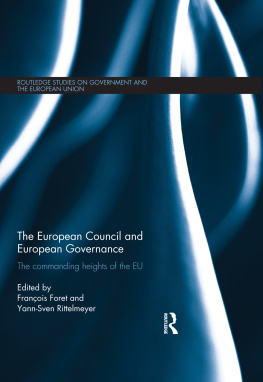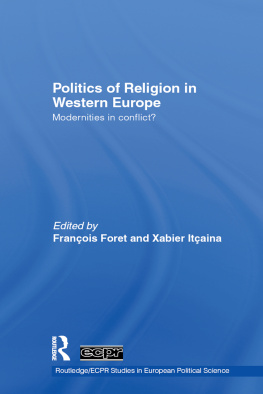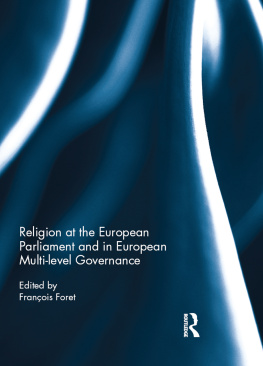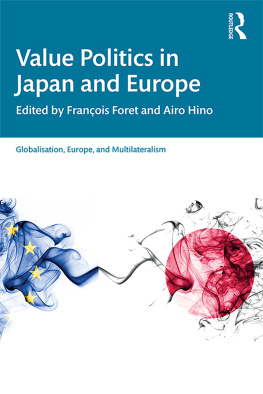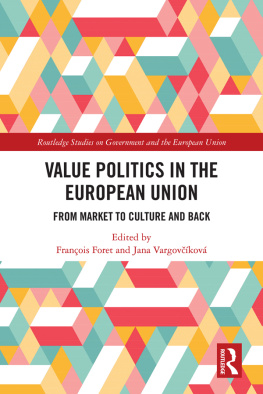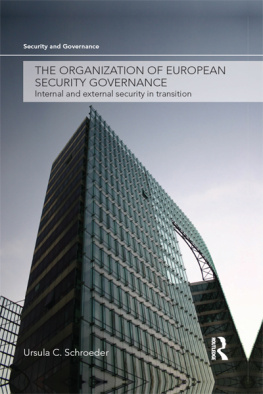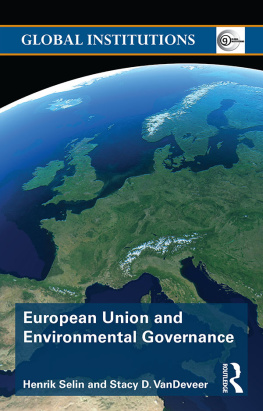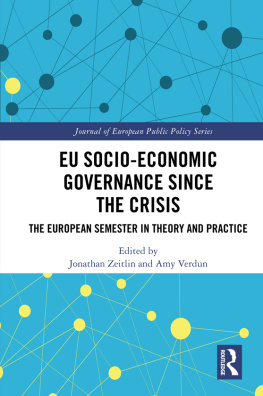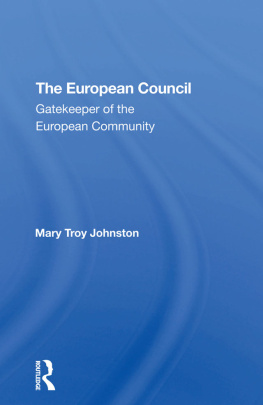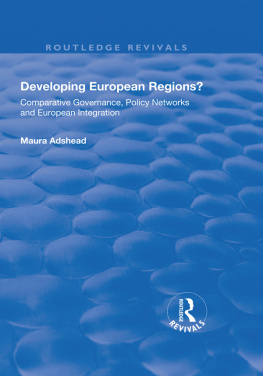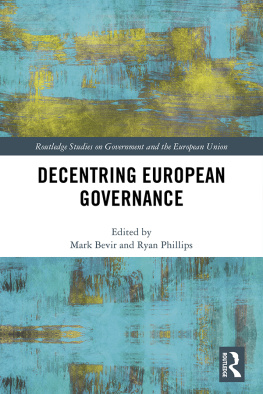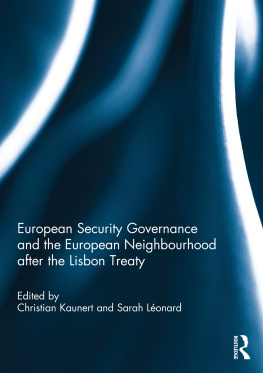The European Council and European Governance
In recent years, the failure of the constitutional process, the difficult ratification and implementation of the Lisbon Treaty, as well as the several crises affecting Europe have revitalized the debate on the nature of the European polity and the balance of powers in Brussels. This book explains the redistribution of power in the post-Lisbon EU with a focus on the European Council.
Reform of institutions and the creation of new political functions at the top of the European Union have raised fresh questions about leadership and accountability. This book argues that the European Union exhibits a political order with hierarchies, mechanisms of domination and legitimating narratives. As such, it can be understood by analysing what happens at its summit. Taking the European Council as the nexus of European political governance, contributors consider council and rotating presidencies co-operation, rivalry and opposition. The book combines approaches through events, processes and political structures, issues and the biographical trajectories of actors and explores how the founding compromise of European integration between sovereignty and supranationality is affected by the evolving nature of this new European political model which aims to combine co-operation and integration.
The European Council and European Governance will be of strong interest to students and scholars of European studies, political science, political sociology, public policy and international relations.
Franois Foret is Jean Monnet Professor in political science and European studies at the Universit Libre de Bruxelles, Belgium.
Yann-Sven Rittelmeyer is Research Fellow in the Study Committee for Franco-German Relations (Cerfa) at the French Institute of International Relations (Ifri) in Paris, France.
Routledge studies on government and the European Union
Edited by Andy Smith
University of Bordeaux, France
1 The European Council and European Governance
The commanding heights of the EU
Edited by Franois Foret and Yann-Sven Rittelmeyer
The European Council and European Governance
The commanding heights of the EU
Edited by Franois Foret and Yann-Sven Rittelmeyer
First published 2014
by Routledge
2 Park Square, Milton Park, Abingdon, Oxon OX14 4RN
and by Routledge
711 Third Avenue, New York, NY 10017
Routledge is an imprint of the Taylor & Francis Group, an informa business
2014 Franois Foret and Yann-Sven Rittelmeyer, selection and editorial matter; contributors their contributions.
The right of Franois Foret and Yann-Sven Rittelmeyer to be identified as editors of this work has been asserted by them in accordance with the Copyright, Designs and Patents Act 1988.
All rights reserved. No part of this book may be reprinted or reproduced or utilized in any form or by any electronic, mechanical, or other means, now known or hereafter invented, including photocopying and recording, or in any information storage or retrieval system, without permission in writing from the publishers.
Trademark notice: Product or corporate names may be trademarks or registered trademarks, and are used only for identification and explanation without intent to infringe.
British Library Cataloguing in Publication Data
A catalogue record for this book is available from the British Library
Library of Congress Cataloging in Publication Data
A catalog record for this book has been requested
ISBN: 978-0-415-85733-8 (hbk)
ISBN: 978-1-315-86698-7 (ebk)
Typeset in Times New Roman
by Wearset Ltd, Boldon, Tyne and Wear
Contents
FRANOIS FORET AND YANN-SVEN RITTELMEYER
PART I
The European Council as an institution and a policy-maker
YANN-SVEN RITTELMEYER
EMMANUEL MOURLON-DRUOL
PETYA ALEXANDROVA, MARCELLO CARAMMIA AND ARCO TIMMERMANS
PART II
The EU presidency and the European Council complementary or competitive?
SIMONE BUNSE AND CHRISTOPHER KLEIN
ANA MAR FERNNDEZ PASARN
STEVEN VAN HECKE AND PETER BURSENS
PART III
Legitimization of the European Union
LARS HOFFMAN AND HARTMUT MAYER
FRANOIS FORET
CHRISTOPHER LORD
Petya Alexandrova is a PhD candidate at the Montesquieu Institute in The Hague and the University of Leiden, Campus The Hague. Her research focuses on agenda-setting in the European Union, the relationship between the EU and its member states, and multilevel policy-making. She is a member of the EU team for the Comparative Agendas Project.
Simone Bunse is a faculty member at Georgetown Universitys Public Policy Institute (GPPI) and director of its Oxford Graduate Program in International Management. Previously she was Assistant Professor at the INCAE Business School. She holds a DPhil in Politics from the University of Oxford (UK). Her publications include a book titled Small States and EU Governance Leadership through the Council Presidency (Palgrave Macmillan, 2009) and articles on power politics in the European Convention.
Peter Bursens is Professor at the Department of Political Science of the University of Antwerp and senior member of the Antwerp Centre for Institutions and Multilevel Politics (ACIM). He received his PhD from the University of Antwerp (1999) for his dissertation on lobby configurations in the European Union. His research interests include Europeanization, federalism and the democratic legitimacy of multilevel political systems.
Marcello Carammia is a Lecturer in European politics at the Institute for European Studies of the University of Malta. He specializes in comparative politics and public policy. His research focuses on political institutions and agenda-setting processes, with a particular interest in party politics, immigration policy and EU integration. He is a member of the Comparative Agendas Project, where he is co-director of the Italian team and is part of the EU team.
Ana Mar Fernndez Pasarn is Associate Professor in politics and public administration at the Autonomous University of Barcelona. She is also associate researcher at Sciences Po Paris (Centre for European Studies, Observatory of European Institutions). Her work is centred on institutional dynamics and decision-making processes in the European Union.
Franois Foret is Professor of political science at the Universit Libre de Bruxelles (ULB) and Jean Monnet Chair (20122015). He is Director of political research at the Institute for European Studies (ULB) and researcher at the CEVIPOL. His work focuses on European politics, policies and institutions; legitimization of European and national political orders; issues of collective identities and memory, and interactions between politics and religion.
Lars Hoffmann is currently working as Assistant Professor of European and International Law at Maastricht University where he is part of the ERC-funded European and National Constitutional Law Project. His research is focused on issues of democracy and legitimacy both at the EU and member-state level. He has previously worked as a postdoctoral fellow at Tilburg University, was a visiting scholar at Michigan Law School and, prior to his doctoral studies at Oxford University, was a research officer at the Federal Trust in London.
Christopher Klein


